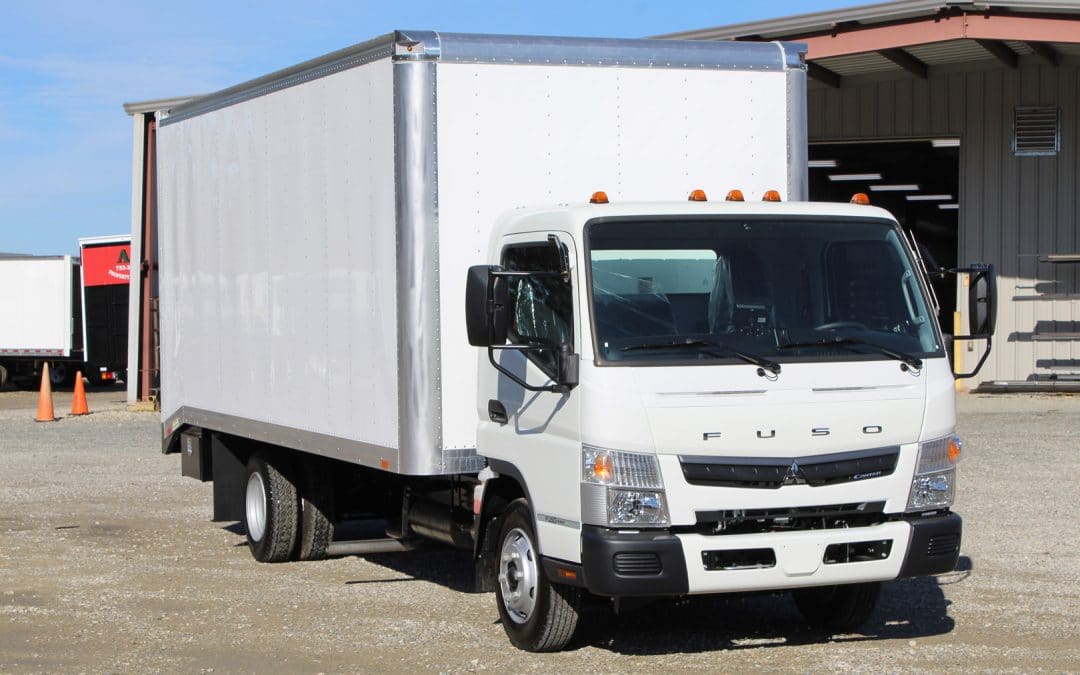A game-changing development is underway in the medium-duty truck category, giving landscape contractors a more affordable cab-forward, gas option that can still handle heavy payloads.
For many years, a cab-forward truck with a GVWR (gross vehicle weight rating) of 16,000 lbs. could only be found with a diesel engine. Mitsubishi Fuso is changing all of that, and Super Lawn Technologies is acting quickly to capitalize on this game-changing development in the medium-duty truck category.
Fuso has introduced a gas-powered, cab-forward truck with a 16,000-lb. GVWR. Until now, the largest on the market had been 14,500 lbs. offered by Isuzu. “That extra 1,500 lbs. gives landscape contractors the ability to safely transport three zero-turn mowers as opposed to just two,” says Tony Bass, president and CEO of Super Lawn Technologies and inventor of the Super Lawn Truck.
In order to get a 16,000-lb. GVWR in the past, contractors had to go with a diesel-powered truck. According to Bass, that meant spending another $10,000 or so. “That’s a lot of money for just 1,500 lbs. of additional cargo weight,” Bass says.
The new Fuso gas-powered, cab-forward truck is being incorporated into the lineup of Super Lawn Trucks, including the new Solar Lawn Truck which features roof-mounted solar panels, a full array of Greenworks battery-powered lawn equipment, and all of the necessary battery-charging equipment to charge batteries in the field and on the truck.
The 16,000-lb. GVWR is especially beneficial to the Super Contractor Truck, which features walk-in tool storage and either a stake bed or dump bed. “Contractors hauling a lot of landscaping materials or even certain compact construction equipment can now operate a gas-powered Super Contractor Truck, helping them to operate more efficiently and cost-effectively,” Bass points out.
Super Lawn Trucks has had a close partnership with Isuzu. That will continue, Bass says, adding that Isuzu has plans to introduce its own cab-forward, gas-powered truck with a 16,000-lb. GVWR and likely a 19,500-lb. GVWR in 2020. Fuso plans to introduce an 18,000-pound model later this year.
Why are contractors are switching from diesel to gas?
Besides a lower purchase price, Bass says landscape contractors have been gravitating more toward gas-powered trucks for several reasons. He began seeing the shift back in 2007 when emission regulations caused the price of diesel-powered trucks to jump roughly 10%. The same thing happened again a few years later.
“Suddenly a $3,000 price difference between gas and diesel expanded to $9,000,” Bass says. “Contractors felt that. When the 2008 recession hit, contractors started watching their costs a lot more. At that time, about 80% of the trucks we sold had diesel engines. Today, 80% have gasoline engines. The market has completely flipped around in favor of gasoline.”
Today’s diesel engines also require more maintenance, Bass points out. Thus, they have a higher operating cost in addition to a higher ownership cost. And because most lawn maintenance contractors aren’t logging tremendous amounts of miles every year, the fuel economy benefits of a diesel engine are marginal.
“The bottom line is that you can get things done cheaper with gas,” Bass says.

